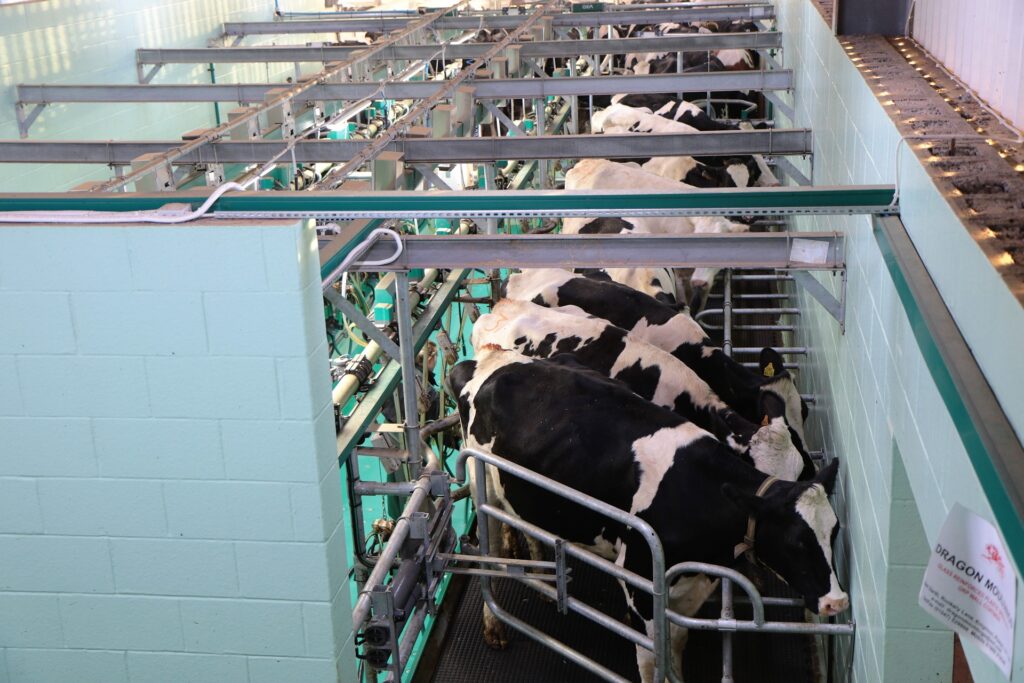Improving milk production in dairy cows can be done through several ways, like by providing adequate nutrition, feed management, maintaining their health and reproduction etc. Here are few tips to improve their milk production

Providing adequate nutrition:
Ensure the cows have a balanced diet that includes all essential nutrients, vitamins, and minerals, with a focus on protein, energy, and calcium.
Implementing proper feeding management:
Regular feeding schedules, feeding smaller amounts more frequently and avoiding overfeeding to reduce digestive issues.
Maintaining good health:
Regular veterinary check-ups, vaccinating against common diseases, and providing a clean and comfortable living environment.
Monitoring reproduction:
Keeping track of the cows’ estrous cycle, implementing artificial insemination, and culling under performing cows.
Reducing stress:
Minimizing physical and environmental stressors, such as noise, heat, and social conflict.
Encouraging physical activity:
Providing enough space and time for cows to move and graze.

Monitoring cow comfort:
Providing adequate bedding, ventilation, and shade.
Adequate nutrition is a crucial factor in improving milk production in dairy cows. A well-balanced diet that includes all essential nutrients, vitamins, and minerals is crucial for the cows’ overall health and milk production. Here are some key elements to consider when providing adequate nutrition to dairy cows:
Energy: Dairy cows require a high level of energy to produce milk, and the diet should provide enough calories from carbohydrates, such as grains and corn, and fats, such as soybean meal.
Protein: The diet should contain enough high-quality protein to support milk production and muscle development. Common sources of protein for dairy cows include soybean meal, cottonseed meal, and canola meal.
Minerals: Minerals, such as calcium, phosphorus, magnesium, and potassium, are essential for healthy bones, teeth, and milk production. A balanced diet should provide enough of these minerals, and supplementation may be necessary to meet the cows’ needs.
Vitamins: Vitamins, such as A, D, and E, play a crucial role in maintaining the health and production of dairy cows. A balanced diet should provide enough of these vitamins, and supplementation may be necessary to meet the cows’ needs.
It’s important to note that the nutritional needs of dairy cows can vary based on their stage of lactation, age, and body condition, and the diet should be adjusted accordingly. Additionally, regular monitoring of the cows’ body condition and milk production can help identify any deficiencies in the diet and make necessary adjustments.
Dasan Feeds offers a full variety of dairy feed products made with the best, most nutrient-dense ingredients to give your animals the best nutrition for maximum output.
We exclusively utilize premium grade raw ingredients in all of our dairy feeds to retain their integrity. We also have good relationships with a wide range of suppliers across the world and are constantly searching the world for the most affordable, highest-quality products to use in our rations.

